Down through the ages, many bodies have washed up on the Aran Islands. In many cases those drowned were islanders but a vast number of drowned strangers were driven by wind and tide to the shores of the three islands.
 |
| Inis Oirr and Doolin are separated by just a short stretch of ocean. (Map from Clare Library) |
One such casualty was the acting sergeant from the tiny police barracks at Ballyreen, just north of Doolin on the west coast of Clare.
At 2 pm on the afternoon of April 29th 1911, acting sergeant Daniel McSweeney (1870-1911), a native of Drimoleague, headed off for a well known fishing spot at Ballyreen just north of Doolin. Regarded as an exceptional location for sea angling, it was also known for rogue waves which could catch fishermen unawares.
Down through the ages, the Aran islands, like West Clare, had a number of incidents of shore and cliff fishermen being washed out to sea.
The most famous of these island drownings occurred just as dawn was breaking in August 1852, when a huge wave arose, sweeping fifteen men and boys from the villages of Iarairne and Cill Éinne, to their deaths.
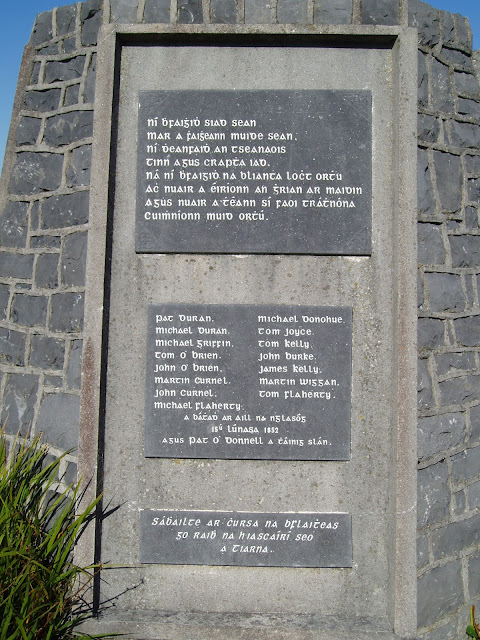 |
| Cill Éinne monument listing those drowned in August 1852 |
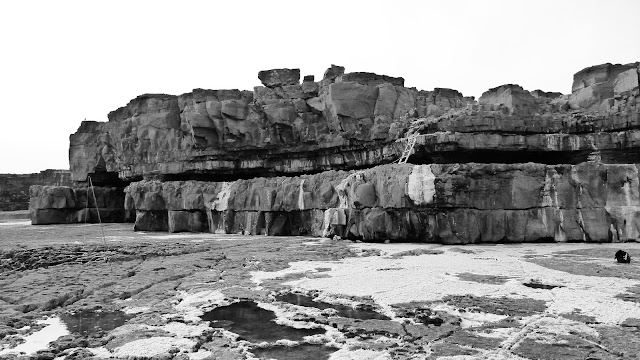 |
| Aill na nGlasóg (Glasson Rock) where fifteen men and boys, were lost in August 1852. |
When Daniel McSweeney failed to return from his fishing trip, his comrades started to search for him.
Going missing while fishing from the rocks was almost certainly a sign that he had been drowned.
For a number days, locals and police had searched the coast in vain but four weeks later on June 2nd 1911, an Islander on Inis Oirr, Thomas Conneely (Coleman) discovered a body, washed in by the tide.
The discovery was reported to the Inis Oirr Coastguards, the body being undoubtedly that of the missing policeman as he was still in his RIC uniform and was still wearing his boots.
Sergeant Kelleher and Constable Giblin arrived from Cill Rónáin and took charge of the body. On checking the inscribed watch it was noted that it had stopped at 3.10 which indicated that Daniel McSweeny had been drowned shorty after commencing to fish.
Sergeant Inspector Harrison at Ballyvaughan ordered Constable Burke of Ballyreen station to proceed to Inis Oirr to formally identify the body. Three local currach men, Patrick O’Brien and James and Patrick Woods rowed him over.
They rowed back next day to Doolin accompanied by an island currach which carried the body of the drowned policeman. They had set off early and arrived at 8am.
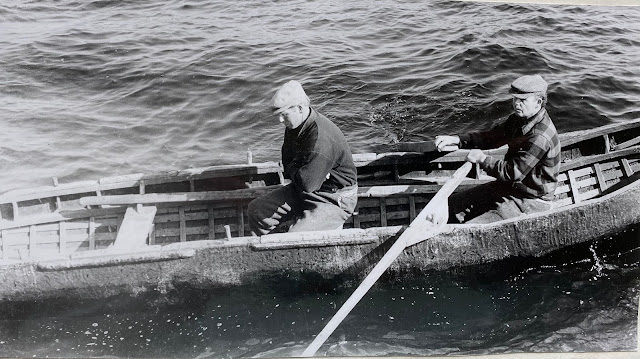 |
| In a currach like this, two islanders rowed to Doolin in June 1911 with the body of the drowned policeman, Daniel McSweeney (Photo from 1977 by Kevin Conlon) |
It must have been a very difficult time for his young widow, Julia Ann Culloty, who now found herself with seven children to rear, the youngest just a few weeks old.
Julianne and her sister travelled from her home village in Kerry to attend the funeral. She had returned home after Daniel going missing.
 |
| Doolin village to where Daniel McSweeney’s body was returned by an island currach in June 1911. |
A benefit fund was started to help the McSweeney family and the policemen stationed in Cill Rónáin, along with the schoolteacher James McCarthy and a retired policeman, Thady Joyce, contributed.
 |
| The whole station in Cill Rónáin seem to have helped with the benefit fund. A complement of ten with five officers normally on duty. |
After small expenses were deducted, Julia McSweeney was handed just over £225. This may not seem a huge sum but it would represent about €40,000 today.
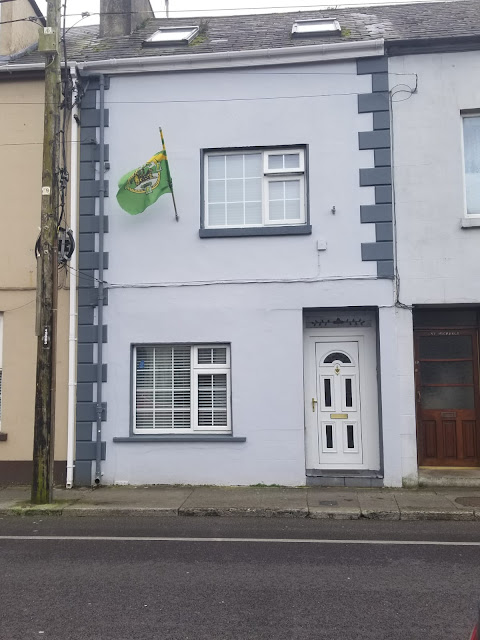 |
| With the money from the benefit fund, Julianne McSweeney was able to buy this Tralee house in her native County Kerry. |
Ireland was relatively peaceful in 1911 but some years later the little barracks at Ballyreen would be burned out and abandoned during the war of independence.
In March 1920 a group of volunteers took control and among these men was Thomas Woods who would later go on to a brilliant career in the new police force, An Garda Siochána. Thomas would retire in the1960s at the rank of deputy Commissioner.
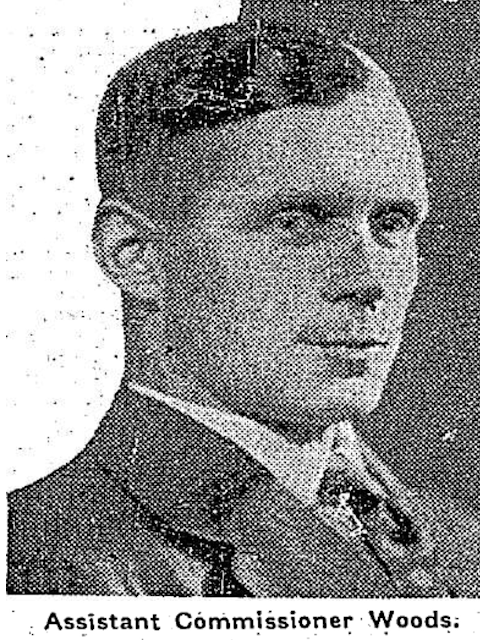 |
| Thomas Woods from Ballyreen Co Clare. |
Daniel McSweeney’s daughter Marie was a member of Cumann na mBan and her brother Jack fought with the anti treaty forces during the civil war.
Being on the losing side in that bitter war, they and their teenage sister Julia emigrated to New York in the 1920s, their mother Julianne having died suddenly in 1923.
In the summer of 2022 an American descendant of Daniel and Julia McSweeny, Brian De Vale, made the journey to Inis Oirr to see the spot where his great grandfather washed ashore in 1911 and to meet some of the islanders whose relations had helped return Daniel to his family.
 |
| The grave in Doolin of Daniel McSweeney |
Brian has had Daniel’s headstone cleaned and his interest in times past has helped resurrect the sad story of how his great grandfather died and how his great grandmother was left a widow with seven young children.
Ml Muldoon. July 2023


